NC's deadliest jail: Buncombe leaders call for low-barrier homeless shelter, reforms
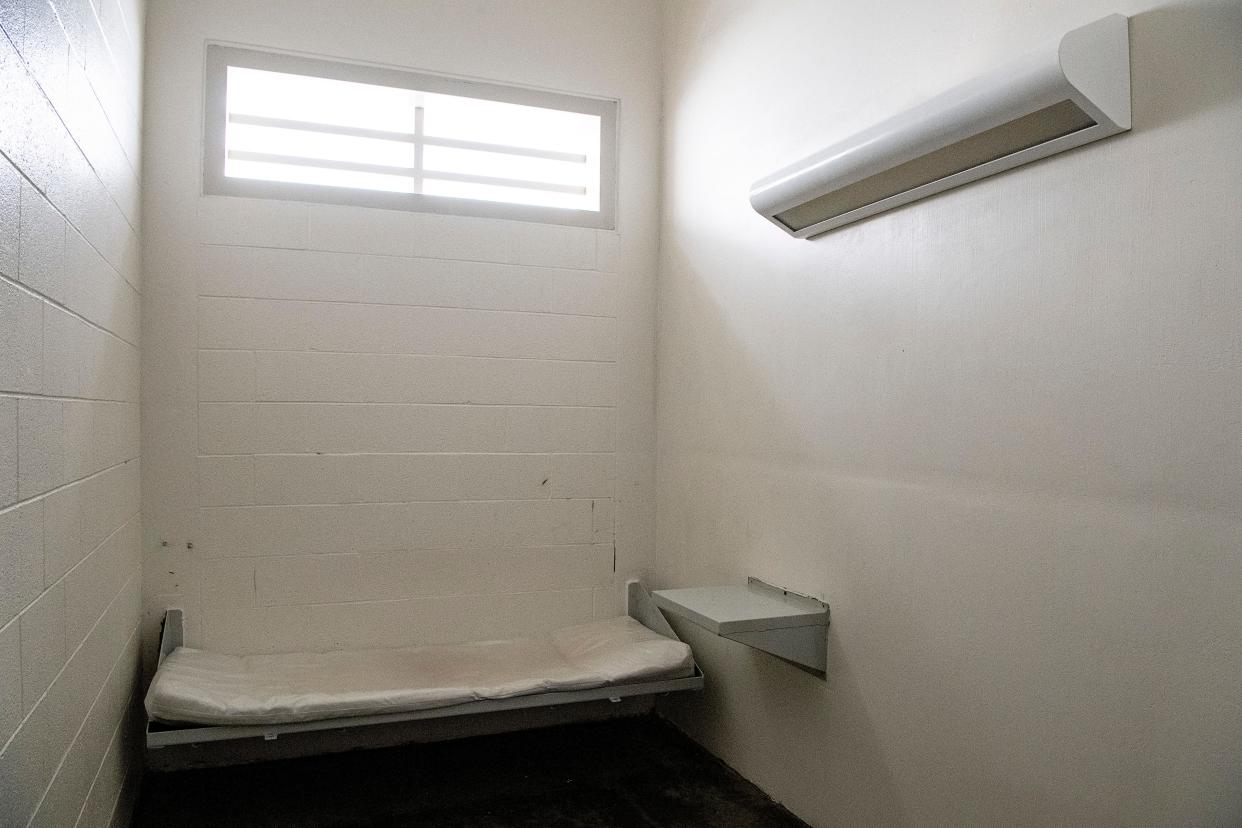
ASHEVILLE - Some elected officials are calling for changes at the Buncombe County Detention Facility and to other services for vulnerable populations after revelations of an alarmingly high death rate — a dismal tally making the facility the state's deadliest jail, a recent Citizen Times project showed.
Proposed changes include a new jail addiction unit, elimination or reduction of cash bail for low-level charges and the establishment of a less restrictive homeless shelter. That follows the recent failure of a city plan to open such a "high-access" shelter.
Five of the seven members of the Board of Commissioners, all Democrats, responded to questions about the high death rate. It came to 2.9 per 1,000 detainees for 2008-21, nearly double the 1.5 national average.
The board is responsible for funding the jail.
State's deadliest jail: Buncombe has worst death rate, Citizen Times investigation shows
Investigative reporting: Behind the Citizen Times investigation to determine Buncombe has state's deadliest jail
Republican District 3 Commissioner Robert Pressley of Bent Creek did not respond to emails and a text message. Chair Brownie Newman of Asheville spoke to the Citizen Times before the Jan. 10 publication of its project on jail deaths but did not respond to questions after publication.
District 2 Commissioner Jasmine Beach-Ferrara of Asheville called the 18 deaths in 14 years — the most recent six occurring in just 16 months — "a terrible tragedy for the families involved," saying her prayers were with them.
"This is yet more evidence of the urgent need to reform — and in some cases rebuild — our criminal justice system and how it connects to issues such as access to health care and addressing homelessness, behavioral health and addiction issues," said Beach-Ferrara, an ordained minister and congressional candidate.
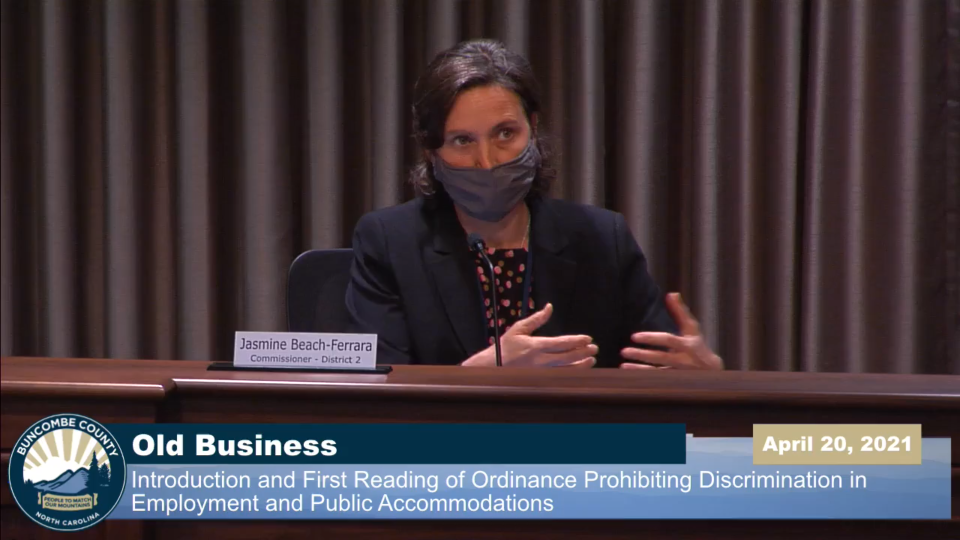
Like Beach-Ferrara, District 3 Commissioner Parker Sloan of Candler said the jail's issues originate from poverty, homelessness, addiction, mental health problems and other wide-ranging societal issues that are particularly acute in Buncombe.
Sloan noted none of the four deaths in 2021 were attributed to use of force. The July 29, 2020, death of Jacob Biddix was attributed to a year-old brain injury from an assault that happened outside the jail, complicated by his refusal to take anti-seizure medication. His family continues to say the jail's emergency medical care was lacking.
From December: Jail death body camera footage being released; but public, media excluded from viewing
Of the most recent six fatalities, there was one suicide, one overdose, three attributed to natural causes or disease and Biddix's death attributed to a prior injury.
"There are a number of larger societal and public policy failures, like our weak social safety net, that have led to much of our jail population to begin with. We have a significant population of people who have not historically had access to health care and may not presently, people that are unhoused, and/or a lack of access to addiction treatment or mental health treatment," Sloan said.
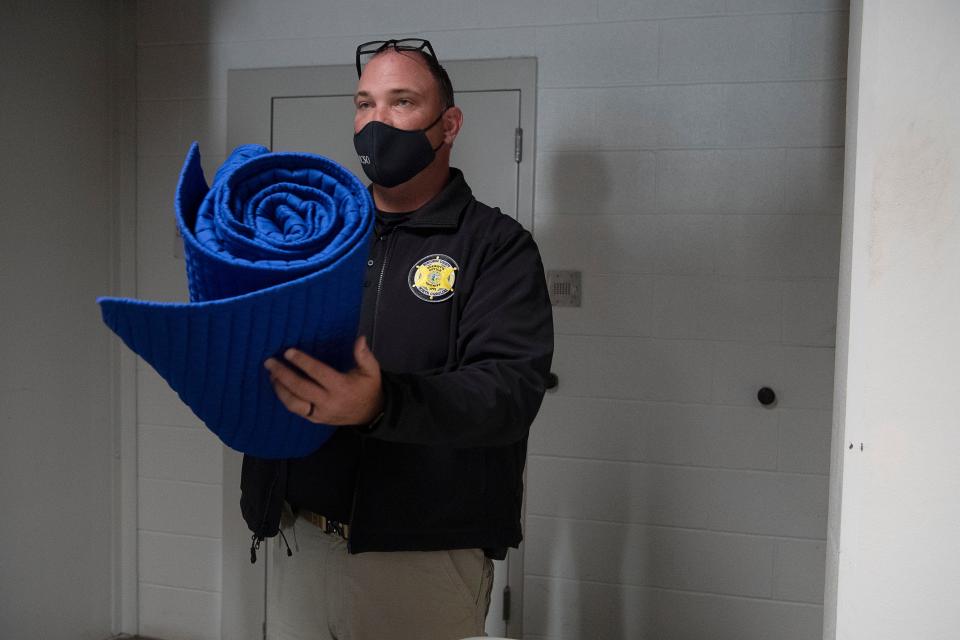
District 1 Commissioner Al Whitesides of Asheville pointed to the state privatization of its mental health care system, which started with the passage of the 2001 Mental Health System Reform law.
"Let’s face it, this goes back several years ago to when the state just walked away, so to speak, from mental health, and even closed some of the hospitals."
District 1 Commissioner Terri Wells of Sandy Mush, in a short Jan. 21 statement, said her heart went out to the families who lost loved ones. She called on "community partners" to help address "various health, addiction, and homeless issues in our community."
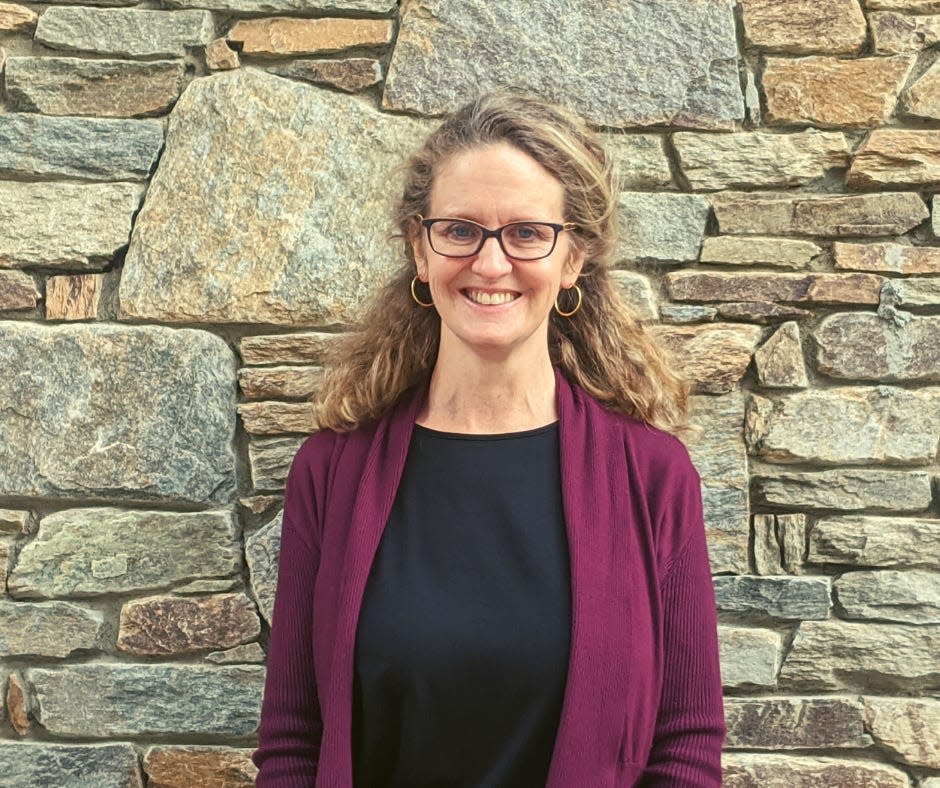
None of the commissioners found fault with Sheriff Quentin Miller, who is responsible for managing the jail. Commissioners said Miller has contacted them after every death or serious injury.
"I know Sheriff Miller takes this very seriously and is working diligently to continue to assess and implement additional improvements to our detention center," Wells said.
County Manager Avril Pinder, who is hired by commissioners to run daily county operations said there have been investments in increased jail medical care, nutrition and other areas.
"Sheriff Miller has centered operations around best practices," Pinder said.
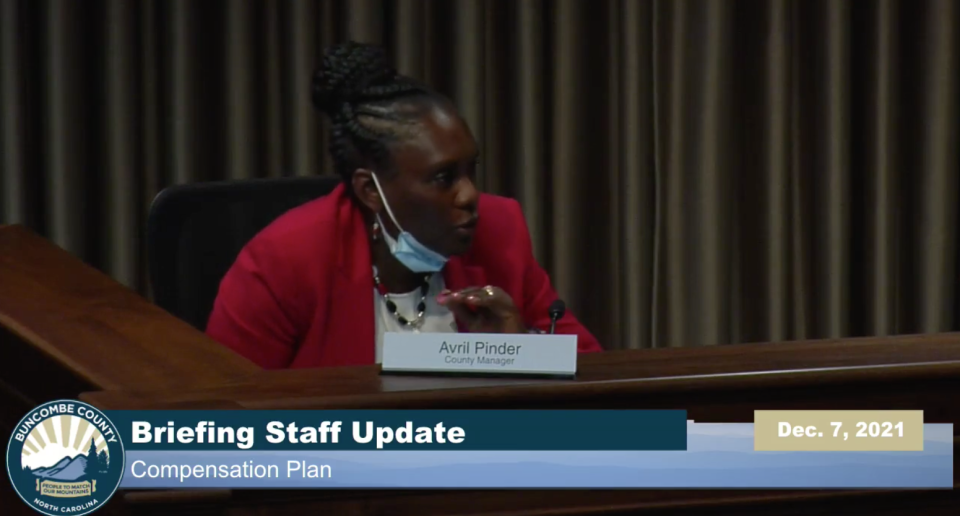
Jails are different than prisons, in that most detainees have not been convicted of the charges for which they are being held. Those who have been convicted are there for relatively minor crimes, as opposed to prisons where inmates serve longer sentences for more serious offenses.
Beach-Ferrara, Sloan and Whitesides called specifically for the establishment of a high-access shelter. Current shelters are run by private organizations and do not allow some people to come in if they don't meet criteria, such as possession of photo identification.
"That will provide whole person care for residents and provide the community with an alternative to incarceration or emergency room drop offs," Sloan said.
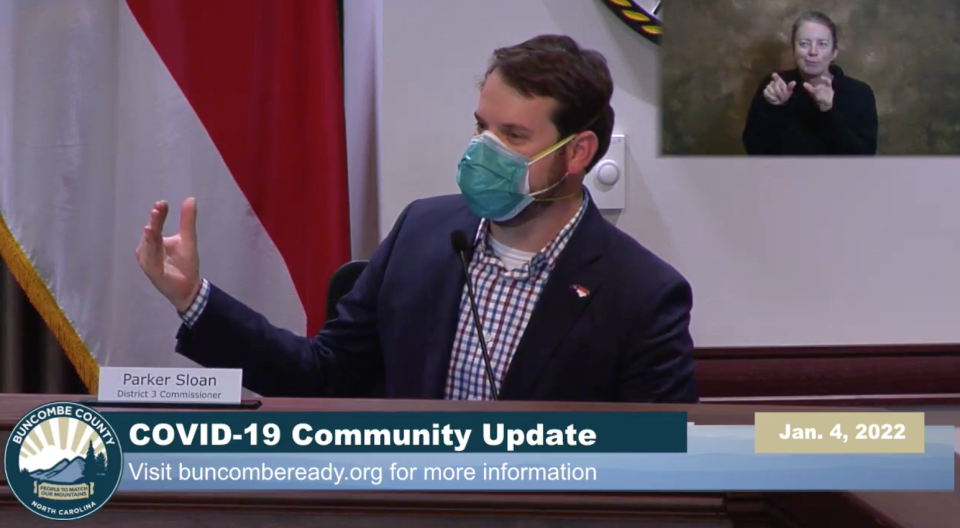
City Council pulled plans to convert an East Asheville Ramada Inn into a high-access shelter after resident and business owner pushback and a decision by county commissioners not to help pay for it.
Homeless community: 'Nowhere to go,' says Asheville's Ramada Inn shelter director of struggle to rehouse residents
Beach-Ferrara said commissioners support the concept but did not support that particular project.
"We’ve got to make sure we get it right from the start. And part of that is really taking the time to do the due diligence ... including in deciding where it will be located," she said.
Beach-Ferrara backed an idea from Miller to create and staff a dedicated jail unit to address behavioral health and addiction needs.
She also said there should be new protocols to identify people with high-risk health problems and give them additional help.
Whitesides agreed, saying jail staff have to a better job of assessing those coming into the jail and who are already there. "They are not going to tell us everything," he said.
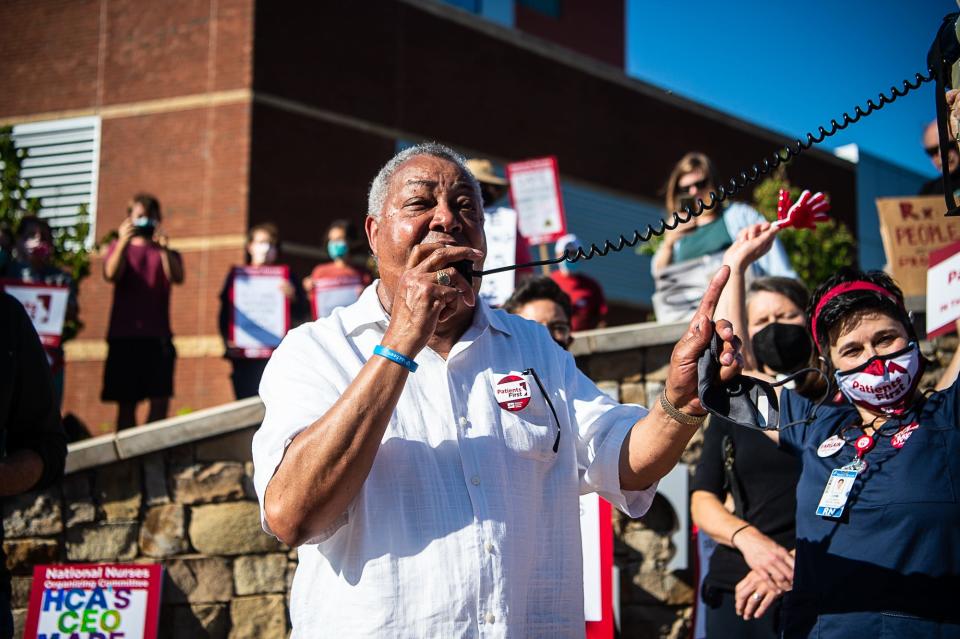
Expanding the county's new community paramedic program to deal with emergencies outside the scope of law enforcement or traditional paramedics, would help reduce jail fatalities, said several commissioners, including Board Vice Chair Amanda Edwards, a District 2 commissioner from Weaverville.
"I have championed the expansion of the community paramedicine program to respond to mental health needs and overdoses," Edwards said, adding commissioners need to keep working with law enforcement and District Attorney Todd Williams to divert cases from the jail.
Beach-Ferrara said lowering the jail population can be helped by restructuring cash bail so that "people on low-level charges are not in detention solely because they cannot pay bail."
Commissioners, Detention Administrator Capt. Jeff Littrell and Sheriff Quentin Miller said they were unaware of the strikingly high death rate.
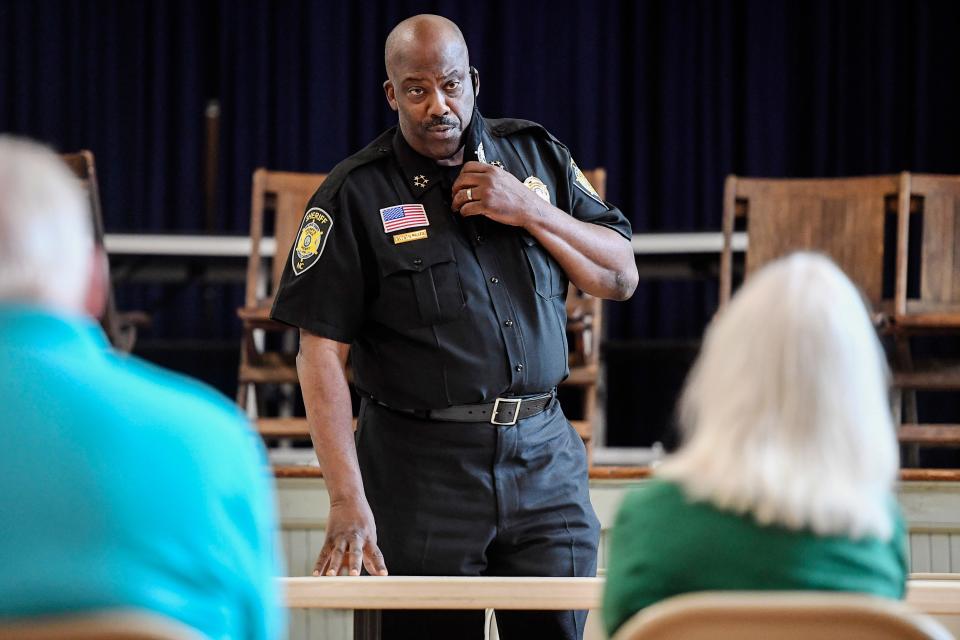
That number was calculated by the Citizen Times using Reuters database and information gathered from the North Carolina Department of Health and Human Services, the state body responsible for overseeing local jails. DHHS did not provide all records requested and as of Jan. 21 had not sent jail reviews that follow deaths. The Citizen Times collected other information from local news reports, a nonprofit watchdog and the UNC School of Government.
Asked if the state or federal government should provide easy access to such information, so that jails can analyze and compare fatalities, most responding commissioners did not comment. Pinder said because there was "no singular repository for this data," she would not comment on the Citizen-Times numbers.
Sloan, though, said there should be "easily accessible robust" information on the detainees.
"Bad or inadequate data leads to bad public policy decisions," he said.
Joel Burgess has lived in WNC for more than 20 years, covering politics, government and other news. He's written award-winning stories on topics ranging from gerrymandering to police use of force. Got a tip? Contact Burgess at jburgess@citizentimes.com, 828-713-1095 or on Twitter @AVLreporter. Please help support this type of journalism with a subscription to the Citizen Times.
This article originally appeared on Asheville Citizen Times: NC's deadliest jail: Buncombe leaders call for new homeless shelter

